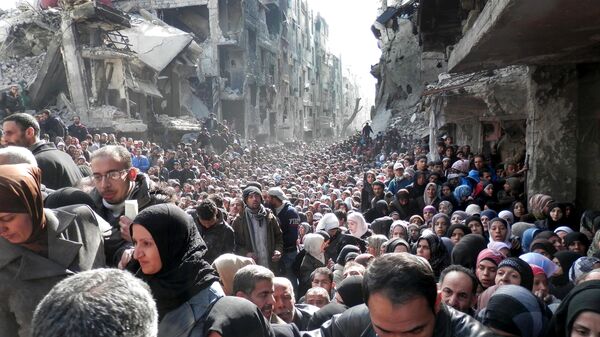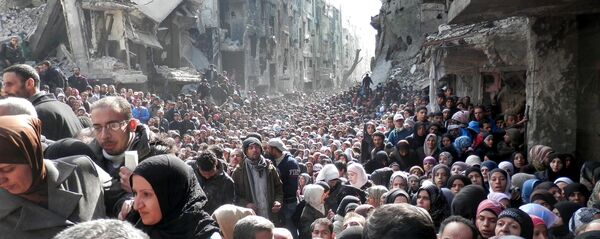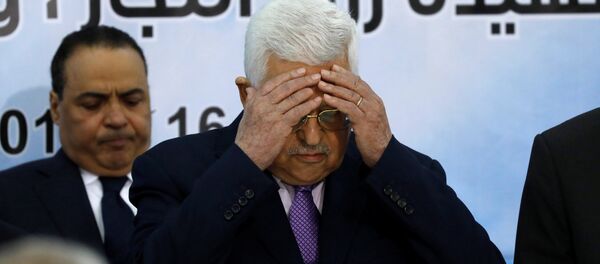Sputnik: What do you make of this announcement and was it at all expected?
Christopher Gunness: This announcement is deeply regrettable because, make no mistake, some of the most disadvantaged people on the planet are likely to suffer. We educate 270,000 children in Gaza; we give food assistance to a million food insecure refugees in Gaza, across the region we educate 526,000 children, our doctors every year do 9 million patient consultations. So it's likely to be felt very, very keenly in these communities, and frankly, they have suffered enough.
Sputnik: Do you think this was a political decision? What was behind the decision, because Trump has criticized your organization.
Christopher Gunness: Let's be very clear about this, the US administration praised UNRWA as recently as a couple of months ago. They praised our reforms, which they said had a high impact, they said we were transparent, there was good accountability, so just a few months ago they were saying UNRWA had high marks and good praise, and yet within a few months we have this decision.
READ MORE: US Cutting Refugee Relief Aid to Exacerbate Plight of Palestinians — Arab League
So I think you should be asking the US administration whether what they're doing is using humanitarian assistance to some of the most vulnerable people as a political weapon. That's not something I am saying, but I think you should ask them.
Sputnik: Some have actually made this assumption that this is sort of going to be a bargaining chip for a so-called peace plan that has been designed by, among other people, Jared Kushner, do you have any comment on that?
However, according to all internationally accepted paradigms resolving the Middle East peace problems, this must be done according to international law, it should be done according to UN resolutions, on the basis of UN resolutions and, of course, in best practice; of refugee work; the refugees themselves must to be consulted, there has to be free will, you can't just put refugees on the bus and tell them to go be resettled somewhere else.
So, yes, we also welcome the idea that we're moving towards peace, but the peace has to be just. It's got to be durable and the refugees need to be consulted about their fate, because you cannot simply airbrush out of the equation 5.4 million people, these are individuals, they are human beings with rights which have to be respected.
READ MORE: ‘Disturbing Statistics': UN Finds Over Half of Refugee Kids Don't Go to School
Sputnik: How will this decision affect the peace process in the Middle East?
Sputnik: Do you feel that there will be other nations, other players who will step up and try to compensate for the huge financial void that the US decision has?
Christopher Gunness: I certainly hope so. We work with the donor community to raise nearly a quarter of a million dollars of new money in the last eight months, which is quite an achievement, however, $217 million remains the deficit and we have to reach out, we have to find new donors if we're going to bridge that gap, because, as I've said, the impact of this is likely to be dramatic, widespread, profound and unpredictable, so we have to close the gap, because the alternative is too grim to contemplate.
READ MORE: UN Agency for Palestine Refugees Confirms US Stops All Funding in 2018
Sputnik: How fast is this decision by the Trump administration going to affect the people who are receiving and dependent on this humanitarian assistance that you've been providing?
Christopher Gunness: To be very clear, we're going to run out of money at the end of September, so we've opened our schools, for example, this week, but from the end of September we will not have any money to pay our 20,000 teaching staff, our medical staff, our relief and social service staff, so it's going to bite very, very quickly.
The views expressed in this article are solely those of Chris Gunness and do not necessarily reflect the official position of Sputnik.




